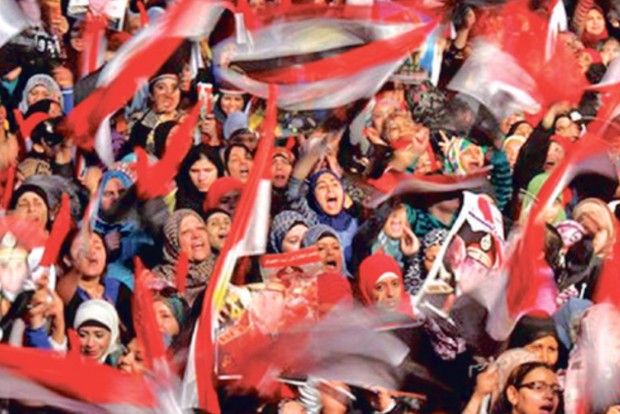Bleak reality 10 years after the uprising
The situation of human and civil rights in the country is dramatically poor, according to human rights organization Amnesty International (AI), which recently noted miserable conditions in Egyptian prisons, torture and unfair trials.

Chennai
It has been 10 years since the 2011 uprising that resulted in the ouster of autocratic President Hosni Mubarak in Cairo. While some progress has been made, the new regime is cracking down harder than ever on dissent. Freedom, justice and human dignity — Egyptians took these three central concerns to the streets at their first protest rally on January 25, 2011. The following weeks were marked by further protests against the political and social conditions people had faced during the 30-year rule of President Hosni Mubarak.
The longer the protests lasted, the more brutally security forces cracked down on them. But the regime was unable to stop the masses from protesting throughout the country, and eventually, on February 11, Mubarak resigned. Egyptians were hoping for — and expecting — a new era without a repressive state apparatus, with more freedom and a political system that followed the rule of law. What transpired, however, was far from all this. In 2013, a military coup ousted the country’s first civilian president, Mohamed Morsi. Abdel Fattah el-Sissi has held the presidency with a firm grip since 2014.
“Egypt has experienced a terrible backlash in every single aspect,” Egyptian activist Hossam El-Hamalawy said in an interview with DW. “This is particularly true for civil rights. The counter-revolution has pushed the country into a state that is even more oppressive than before the 2011 revolution. The uprising has taken a terrible turn and has led to a tremendous regression.”
Dramatic human rights situation
The situation of human and civil rights in the country is dramatically poor, according to human rights organization Amnesty International (AI), which recently noted miserable conditions in Egyptian prisons, torture and unfair trials. AI also spoke of a “horrifying execution spree” in the country that took place in October and November 2020. In its latest World Report, Human Rights Watch deplored that “under the guise of fighting terrorism, Egyptian authorities showed utter disregard for the rule of law.” For prisoners, the global pandemic had led to a further deterioration of their already dire conditions, it said. Last December, the European Parliament issued a resolution “on the deteriorating situation of human rights in Egypt” and called on its member states “to conduct a deep and comprehensive” review of relations with Egypt. The position of the UN is similar. “The Arab Spring in Egypt was short-lived,” Agnes Callamard, a special rapporteur on extra-judicial killings to the UN, told AFP. “The regime has learnt the worst lesson — to nip any hint of freedom in the bud.”
The Egyptian government, however, denies such accusations. In a statement to AFP, the Foreign Ministry denied the use of arbitrary arrests or torture in Egypt. It said there were “no political prisoners” and stressed that the government “attaches great importance to the freedom of opinion and expression”. Yet documentations by several human rights organisations yield a different picture.
Using official data, it is hard to judge to what extent social progress has been achieved. Just recently, Egyptian Prime Minister Mostafa Madbouly published the first statistics on Egypt’s poverty rate in 20 years. They show that almost 30% of the population was living below the poverty line in 2019-2020. In the two previous years, the rate was 32.5%.
The Central Bureau of Public Mobilization and Statistics has different figures. It gives the poverty rate as having been 28% five years ago, with a rise of two percentage points since then.“El-Sissi has focused on huge prestige projects, so-called white elephant projects, that have, above all, major propaganda effects,” said activist Hossam el-Hamalawy and adds: “He and a group of businessmen and generals benefit from this. But these are sham projects that have no impact on the lives of citizens.”
This article was provided by Deutsche Welle
Visit news.dtnext.in to explore our interactive epaper!
Download the DT Next app for more exciting features!
Click here for iOS
Click here for Android



